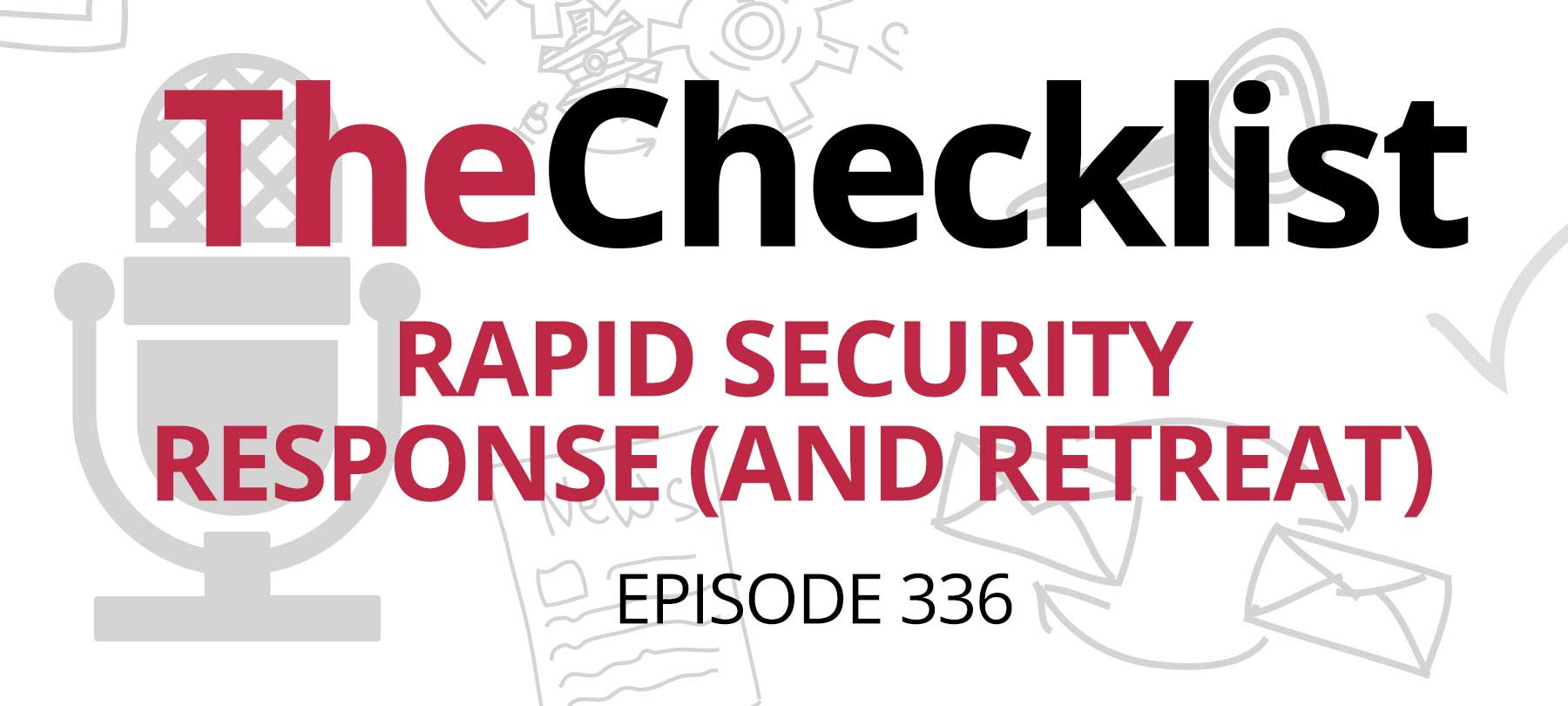
Checklist 336: Rapid Security Response (and Retreat)
Apple’s Rapid Security Response Faces Challenges with Recent Updates
Apple’s Rapid Security Response (RSR) feature, introduced as part of iOS 16, has encountered setbacks and raised concerns among users. RSR is designed to provide quick security patches and improvements for iPhone, iPad, and Mac devices between regular software updates. By addressing critical system libraries, Safari, and other web browsing components, Apple aims to swiftly mitigate security issues that may be actively exploited.
Although Apple had previously tested the RSR system, it had only released two actual updates until this week. On Monday, Apple released iOS 16.5.1 (a) and similar updates to fix a WebKit vulnerability that the company was aware of potentially being exploited. However, the updates also triggered problems with accessing major websites like Facebook, Instagram, WhatsApp, and Zoom. As a result, Apple swiftly removed the updates and planned to replace them with improved versions.
Naked Security highlights the advantages of RSR, including faster development, testing, and installation processes compared to full OS updates. However, the rapid nature of RSR also allows for quick reversal if issues arise. While Apple provides instructions for users to remove problematic updates, it’s ultimately up to individuals to decide whether to maintain the vulnerability or roll back the updates.
On Wednesday, Apple issued Security Response 16.5.1 (c), which included fixes from the initial 16.5.1 (a) update, along with addressing issues related to website display problems. Notably, RSR is only available for the latest versions of iOS, iPadOS, and macOS, leaving older versions without the benefits of rapid security responses.
In addition to RSR, Apple also released Safari 16.5.2, specifically targeting the WebKit vulnerability across macOS Big Sur and macOS Monterey.
Despite the challenges faced by RSR, Apple continues to emphasize the importance of promptly addressing security vulnerabilities, and users are encouraged to stay updated with the latest software versions.
High School in Illinois invites Security Breach
In a recent incident at a high school in Illinois, an audit resulted in the accidental resetting of all students’ passwords. The recommended approach would have been to log out every user and prompt them to change their passwords upon logging in again. However, instead of following this procedure, the school made a critical mistake by changing every student’s password to “Ch@ngeme!”
The choice of such a password was particularly ill-advised due to its common usage as a default password by various vendors for years. Furthermore, the school compounded the issue by informing all students of the password change, effectively sharing it with everyone. The consequences of this decision were swiftly realized, as it became apparent that students could access not only their own accounts but also those of their peers.
Concerned parents voiced their dissatisfaction, pointing out the severe security vulnerability created by the school’s actions. Students gaining unauthorized access to their classmates’ accounts could potentially view emails, documents, class work, and other sensitive information stored on Google Drive.
Approximately 3,000 parents received an email explaining the situation and the password change. However, it didn’t take long for recipients to realize the inherent flaws in the approach. The school failed to respond promptly to the issue, only acknowledging the problem a day later. They announced that a unique password process would be implemented for each student, without providing further details.
Despite requests for comment, both the school and the school system’s officials remained silent, leaving many questions unanswered.
This incident serves as a stark reminder of the importance of implementing secure password management practices and conducting thorough audits to prevent compromising sensitive information.
